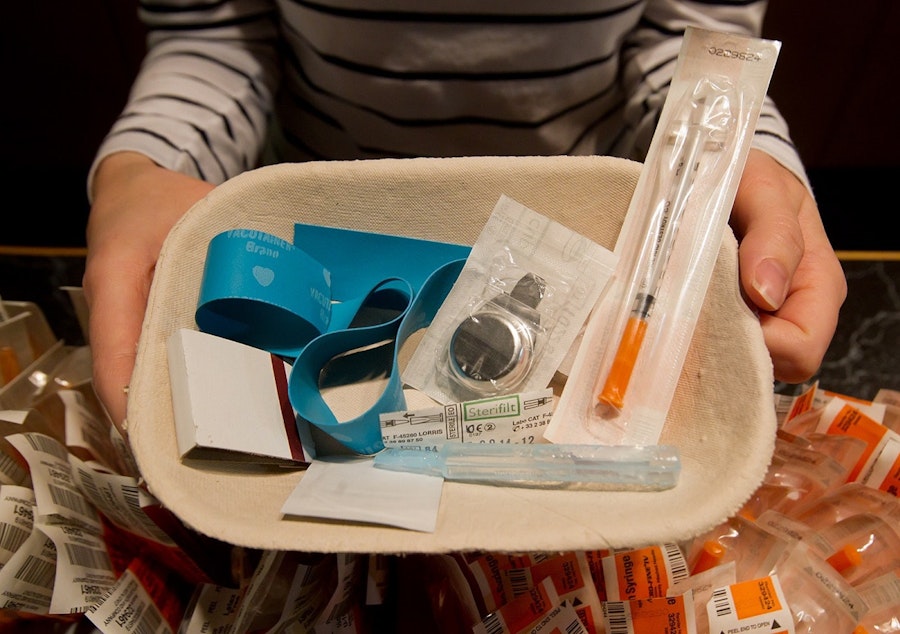Seattle's supervised drug use site put on hold

Jason Johnson, the interim head of Seattle's Department of Human Services, said plans for the site have been halted over legal action and money concerns.
The facility would provide a clean place for people to use drugs as well as other medical and counseling services, such as medication to treat addiction, case management, and referrals to housing.
A memo from Johnson said his department is worried about being the target of federal legal action after a U.S. Attorney sued a Philadelphia nonprofit last month over its plans to open a similar facility.
"The City of Seattle is closely watching the progress of this lawsuit, and working with our City Attorney’s Office to consider all of our legal options," the memo reads.
Johnson's memo also worried over money. The full cost of a supervised drug use site, called a Community Health Engagement Location, would be approximately $2.5 million a year, according to the memo, but the city and county have yet to dedicate enough funds.
The city set aside $1.4 million in one-time funding last year to open and run the facility, and the county has allocated half a million dollars to buy a mobile van where it would be located.
Report On Fixed Mobile Community Health Engagement Location Site Selection Statement Of Legislative Intent 14 2 A 1
Memo from interim human services director, Jason Johnson, to Seattle City Councilmember, Teresa Mosqueda March 8, 2019
William McSwain, U.S. Attorney for the Eastern District of Pennsylvania, filed a civil suit last month asking a judge to declare a similar planned drug use site in Philadelphia illegal under the federal Controlled Substances Act.
Safehouse, a religious organization, intends to operate a medically supervised location for people to use drugs in Philadelphia. The organization would provide sterile equipment to use the drugs and strips to test drugs for Fentanyl, but the group would not provide any drugs, according to its website. The plan also includes access to medical and social services.
Safehouse maintains that the sites “are legal and save lives,” according to the group’s website.
Plans in Seattle and King County for such a site have been in the works for years, following one recommendation from the county's Heroin and Prescription Opiate Addiction Task Force.
Last November, the Seattle City Council asked the mayor to submit a report March 1st identifying the location for a supervised drug use site operating out of a mobile van.
Johnson submitted the report March 8 following “legal updates” from the city attorney and county prosecutor’s offices, mayoral spokesperson Kamaria Hightower said. The city is trying to figure out what its “legal jeopardy” would be, she said.
“It looks like we’re in a holding pattern,” Hightower added.




